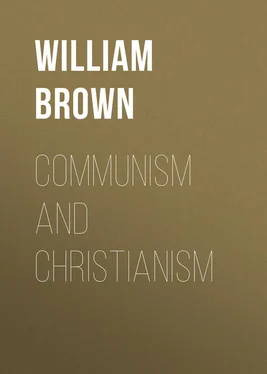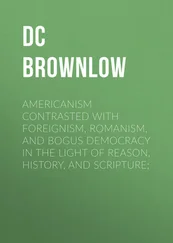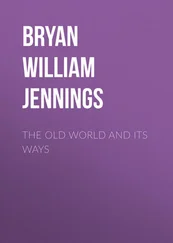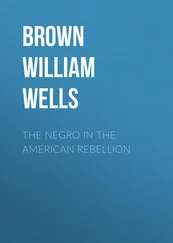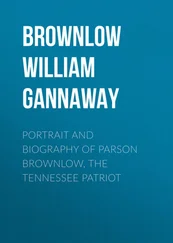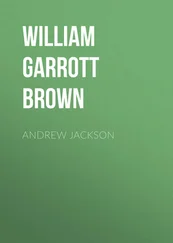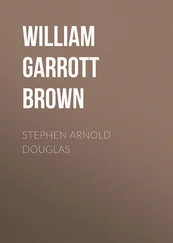William Brown - Communism and Christianism
Здесь есть возможность читать онлайн «William Brown - Communism and Christianism» — ознакомительный отрывок электронной книги совершенно бесплатно, а после прочтения отрывка купить полную версию. В некоторых случаях можно слушать аудио, скачать через торрент в формате fb2 и присутствует краткое содержание. ISBN: , Жанр: foreign_antique, foreign_prose, на английском языке. Описание произведения, (предисловие) а так же отзывы посетителей доступны на портале библиотеки ЛибКат.
- Название:Communism and Christianism
- Автор:
- Жанр:
- Год:неизвестен
- ISBN:http://www.gutenberg.org/ebooks/30758
- Рейтинг книги:3 / 5. Голосов: 1
-
Избранное:Добавить в избранное
- Отзывы:
-
Ваша оценка:
- 60
- 1
- 2
- 3
- 4
- 5
Communism and Christianism: краткое содержание, описание и аннотация
Предлагаем к чтению аннотацию, описание, краткое содержание или предисловие (зависит от того, что написал сам автор книги «Communism and Christianism»). Если вы не нашли необходимую информацию о книге — напишите в комментариях, мы постараемся отыскать её.
Communism and Christianism — читать онлайн ознакомительный отрывок
Ниже представлен текст книги, разбитый по страницам. Система сохранения места последней прочитанной страницы, позволяет с удобством читать онлайн бесплатно книгу «Communism and Christianism», без необходимости каждый раз заново искать на чём Вы остановились. Поставьте закладку, и сможете в любой момент перейти на страницу, на которой закончили чтение.
Интервал:
Закладка:
Notwithstanding all appearances and impressions to the contrary, this bone never was really Paris or Berlin, but first one and then another country – the Balkan States, Mexico, Persia, Morocco and Russia.
Of late Russia has been the chief bone of contention. Hence all the snarling against Russian Bolshevism, one of a large litter of puppies born to the Newfoundland since the beginning of the war, representatives of which have already made their way to several countries of Europe, and the prospects are that they or their offspring will soon be in evidence everywhere throughout the world.
When all these Bolsheviki are grown-ups, they will make the world safe for democracy sure enough – not the competitive democracy of the bull dogs and blood hounds, but the co-operative democracy of the Newfoundland dog. Then, and not before, will the world be safe against war.
Since the beginning of the armistice there has been, every now and then, a widespread fear that it might not be permanent, because of a successful effort on the part of the bull dog to put over another war on account of the Russian bone; but for many this fear has now been almost quieted by the total collapse of the Kolchak, Denikin, Yudenich and Wrangel uprisings from within, which were strongly supported by the Allies; and by the repulsion of the Polish invasion which had England, France and the United States behind it.
An astonishing illustration of the truth of the Marxian theory concerning the materialistic or economic determination of history, is furnished by the melancholy fact that the representatives of big business in the allied countries would gladly respond to Gen. Ludendorff's call to join the junkers, against whom they so recently fought, in a war against Russia, of which war Germany would be the battle field. A concerted effort was made to organize such a war, but the wisdom learned in the school of the world war by the working-men of all the countries to which the call was made and their consequent opposition to the effort caused it to fail.
2. But great as the suffering of the world is on account of the bloody wars of capitalists with each other, it is but a drop in the bucket of sorrow as compared with its suffering on account of the bloodless wars between masters and slaves – between the machine owners and operators. When this bloodless war ceases, as it will with the triumph of international socialism, the bloody wars will cease and not until then.
Under the capitalist system every institution (state, church, school, legislature, court, business, yes, even charity) is necessarily a robbing instrumentality by which a small class of non-producers, fat masters, rob a large class of producers, lean slaves, and rob them twice, each time thrice:
1. The master non-producers rob the slave producers of the three great necessities of physical (body) life – food, clothing and houses.
Even in the United States of America, "the land of plenty," at this time and at all times, seventy-five out of every one hundred are insufficiently fed, clothed and housed.
2. The master non-producers rob the slave producers of the necessities of psychical (soul) life – the liberty to learn the facts of nature, the liberty to humanly interpret and live them and the liberty to teach their discoveries and interpretations.
Even in the United States of America, "the home of political and religious freedom," there is not one who can learn, live and teach the truth without danger of being put out of a synagogue and into a penitentiary; and this will continue until imperialistic capitalism and supernaturalistic Christianism, the father and mother of the whole brood of robbers, liars, persecutors and warriors, have been dethroned.
The gods of the capitalistic interpretations of politics and the gods of the supernaturalistic interpretations of religion, symbolize the same reality, parasitic robbery.
Yet within the religious realm the trouble is not with the Jehovahs any more than within the political realm it is with the Sams, but only with what they symbolize.
For one I should feel that both the religious and political realms, which are but halves of the same realm – religion the ideal half, and politics the practical half – would be poorer without their respective Jehovahs and Sams, even as the realm of childhood would be without its Santa Claus.
If symbols are not absolute necessities to the religious and political realms, nevertheless they always have been, now are and probably ever shall be ornaments of them; I hope for their continuance, but as subjectivities, not objectivities.
All the imperialistic interpretations of politics and all the supernaturalistic interpretations of religion must be overthrown, else the world will be lost. The omnipotent, omnipresent saviour who can and will deliver us from them is already in the world. His name is International Communism, the greatest and holiest name which has ever been framed and pronounced; and the gospel of this saviour as it is translated by Thomas Carlyle is written on every wall so that it may be read by all:
Understand that well, it is the deep commandment, dimmer or clearer, of our whole being, to be freed. Freedom is the one purpose, wisely aimed at, or unwisely, of all man's struggles, toilings, and sufferings, on this earth.
Morality is the greatest thing in the world because without it human life would not be worth the living, or even possible; but, paradoxical as the assertion may seem, freedom or liberty is greater because without it morality would be an impossibility.
One can attain to the very highest standard of morality, religion and sainthood without the least necessity of the slightest reference to what the gods of the supernaturalistic religions said or did, and this is quite as true of Jesus as of any other among such gods, but no man can reach even the lowest standard of morality, and so of course not of religion or sainthood, without constant reference to the god of truth.
Yet there is a difference between a law and a truth. The law is a doing or act of nature, and as such it is a fact or revelation. There are no other facts or revelations.
According to the traditional superstitious conception, a truth is the revelation of the will of a god, involving a service to be rendered directly or indirectly to him, and morality consists in a fulfillment of it.
According to the modern scientific conception, a truth is the interpretation of a fact involving a service to be rendered to men. On the scientific theory each man must have what truth he has, either by his own interpretation or by the adoption for himself of another's interpretation.
No man can live the moral part of his psychical (soul) life on the truth of another any more than he can live his physical (body) life on the meals of another. Every one must have his own truths, even as he must have his own meals.
Hence the necessity of freedom to morality. Hence, too, the impossibility of the moral life under restraint, such as is imposed by orthodox churches in their official dogmas, and such as is imposed by belligerent states in their espionage laws.
Capitalism is essentially competitive and therefore necessarily belligerent in character: hence a complete, an ideal moral life is an utter impossibility under it, but even the little of moral life which otherwise might be possible is lessened to one-half by official dogmas and espionage laws; if, then, the governments of churches and nations have any regard for the morality of their memberships and citizenships they will at once repeal them, and never enact others.
The democracy which means freedom to learn the laws of the physical realm of nature and to interpret them into laws for the regulation of human life (a democracy which will secure to each one the longest and happiest life which, under the most favorable of conditions, would be within the range of possibilities for him) must wait until the competitive system of capitalism for the production and distribution of the necessities has been universally and completely supplanted by the co-operative system of socialism.
Читать дальшеИнтервал:
Закладка:
Похожие книги на «Communism and Christianism»
Представляем Вашему вниманию похожие книги на «Communism and Christianism» списком для выбора. Мы отобрали схожую по названию и смыслу литературу в надежде предоставить читателям больше вариантов отыскать новые, интересные, ещё непрочитанные произведения.
Обсуждение, отзывы о книге «Communism and Christianism» и просто собственные мнения читателей. Оставьте ваши комментарии, напишите, что Вы думаете о произведении, его смысле или главных героях. Укажите что конкретно понравилось, а что нет, и почему Вы так считаете.
